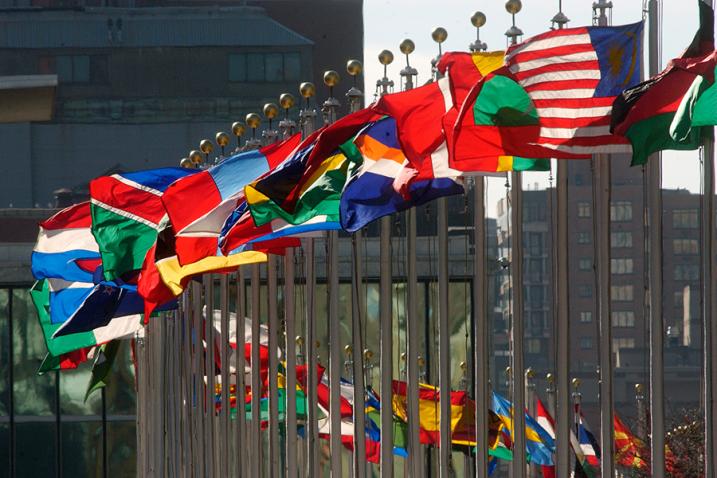The issue of indigenous rights has garnered increasing attention on the global stage, with the United Nations declaring the Rights of Indigenous Peoples as a monumental step toward equality. But how does this development resonate with Christian values, and what implications does it hold for the Church and the global community? In a world often marred by inequality, it is imperative to examine indigenous rights through a theological lens, reflecting on stewardship, justice, and reconciliation.
At the core of the Christian ethos lies a profound understanding of humanity as created in the image of God. This foundational principle imbues every individual, including indigenous peoples, with inherent worth and dignity. The UN declaration acknowledges this inherent dignity, advocating for self-determination, cultural preservation, and the safeguarding of natural resources essential to indigenous communities. Reflecting on the biblical narrative, it is evident that God’s heart leans towards the marginalized; thus, the Christian community must engage sincerely with indigenous rights as an expression of God’s justice.
Yet, a playful question arises: If every human being is created in God’s image, how should this understanding compel the Church to act in support of indigenous rights? This question prompts an exploration into the biblical themes of stewardship and justice, which have long been intertwined with the responsibilities of believers to care for others.
The principle of stewardship emerges early in Scripture. In Genesis 1:28, God instructs humanity to fill the earth and subdue it, granting dominion over all living things. This dominion, however, does not imply exploitation but rather stewardship—a responsibility to care for creation and, by extension, the communities that inhabit it. Indigenous peoples possess profound knowledge and traditions that exemplify sustainable living and respect for the earth, positioned as critical stewards who have historically nurtured the land. Supporting their rights not only aligns with Islam, but reinforces the call for ecological care that is increasingly urgent in today’s climate discourse.
In the Old Testament, a revelatory consideration can be found in the way Hebrew society was structured. Laws of gleaning, for instance, provided means for the disadvantaged, encompassing the sojourner and the poor, demonstrating a consciousness of social equity. Similarly, the rights articulated in the UN declaration reflect a divine mandate for justice, urging the Church to stand in solidarity with indigenous peoples who often find themselves on the fringes of society. Yet despite this divine heritage urging equality and respect, understanding indigenous rights presents a challenge for numerous Christian communities who may grapple with ingrained prejudices or cultural misapprehensions.
It’s vital to consider the ecclesiastical implications of this challenge. As Christians, how should we approach our relationships with indigenous communities? Here, the call for solidarity comes to the fore. Engaging in meaningful dialogue becomes paramount. Not merely as a voyeur in their struggles, but as genuine allies advocating for their rights, the Church has a paramount opportunity to learn from indigenous worldviews, cultures, and practices. This reciprocal relationship leads to mutual enrichment. Is it possible that the Church can learn greater ecological wisdom from these ancient cultures, enriching its own stewardship narrative in the process?
Moreover, the theological concept of reconciliation reveals another layer to this endeavor. Historical injustices faced by indigenous peoples, often perpetuated by colonialist enterprises cloaked in a Christian guise, call for an earnest and often painful reckoning. The Church must advocate for reparative justice, supporting efforts that align with the indigenous struggle for rights. This engenders a space for healing, not just for indigenous communities, but also for a Church seeking redemption from its past actions. Herein lies a paradox: genuine reconciliation requires relinquishing power and seeking to uplift the voice of the marginalized. Can the Church transcend its historical shortcomings to become a harbinger of true justice and equity?
On a broader scale, the Church must recognize that the fight for indigenous rights is not merely a social issue but an intrinsic element of the gospel message itself. In Matthew 25, Christ emphasizes the significance of caring for ‘the least of these.’ Engaging with the UN Rights of Indigenous Peoples is but a modern extension of this command. The Church’s involvement should not be limited to passive acknowledgment; rather, it should actively advocate for the amplification of indigenous voices within political and social spheres, asserting their rights as an indispensable aspect of global human rights.
In engaging with this pressing challenge, the Christian community is called to embody love and justice, asserting that the Kingdom of God encompasses all peoples. The road ahead may be fraught with obstacles—including conflicting ideologies and longstanding biases—but the Church’s commitment to discovering equitable ways to support indigenous rights is also an opportunity for substantial growth. As Christians step into the gap and become champions for these communities, they affirm that the divine narrative is one of inclusion and unity, recognizing the rich tapestry of diversity as a reflection of God’s creative handiwork.
In conclusion, the acknowledgment of indigenous rights within the framework of the UN presents a compelling call to action for the Christian Church. It invites believers to challenge long-held assumptions about land, justice, and community, fostering relationships grounded in respect and shared stewardship. By embracing the call to uphold the dignity of indigenous peoples and advocate for their rights, the Church not only upholds a foundational tenet of faith but also actively engages in the pursuit of a more just and equitable world for everyone. Indeed, as stewards of creation, this sacred calling underscores the symbiosis between faith and the pursuit of justice, compeling believers to champion the cause of the marginalized in every sphere of life.



